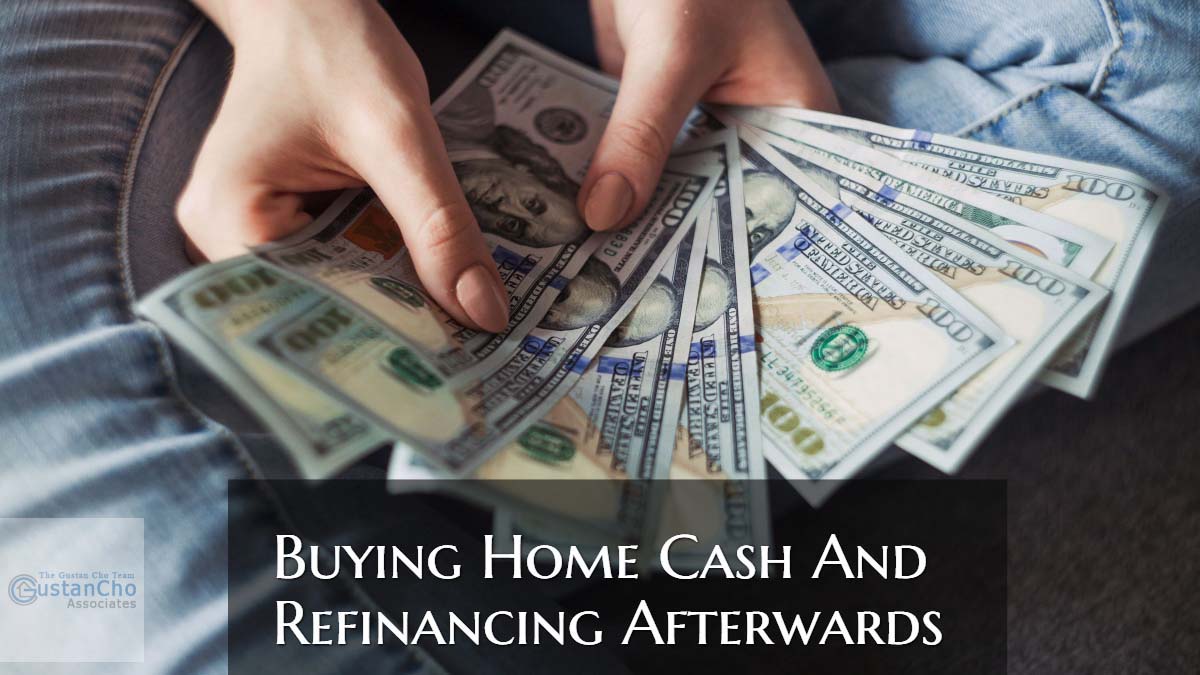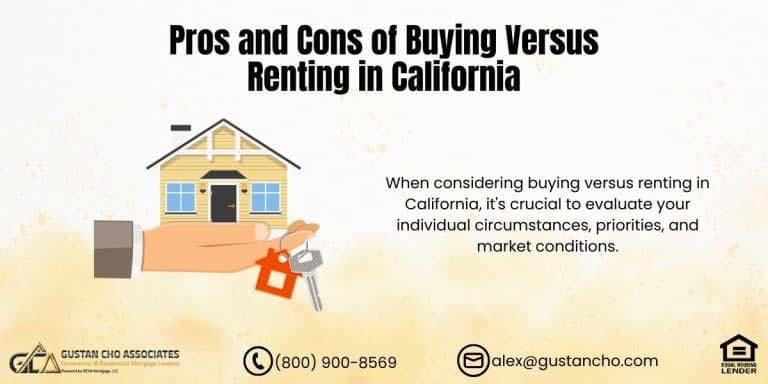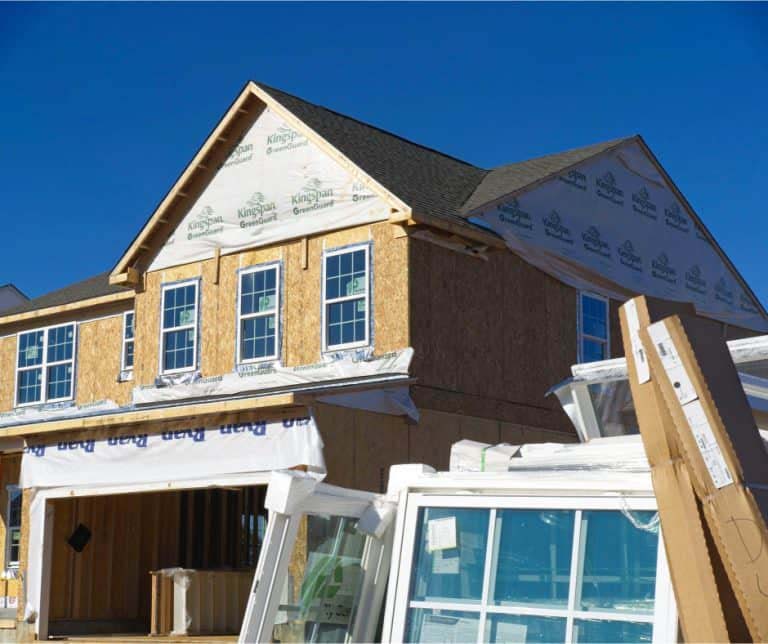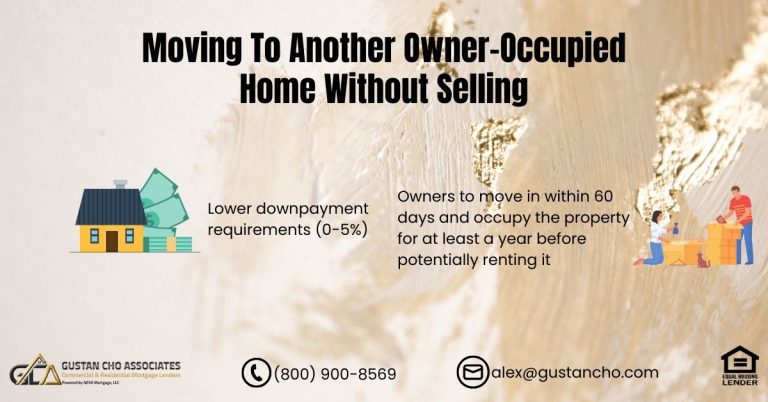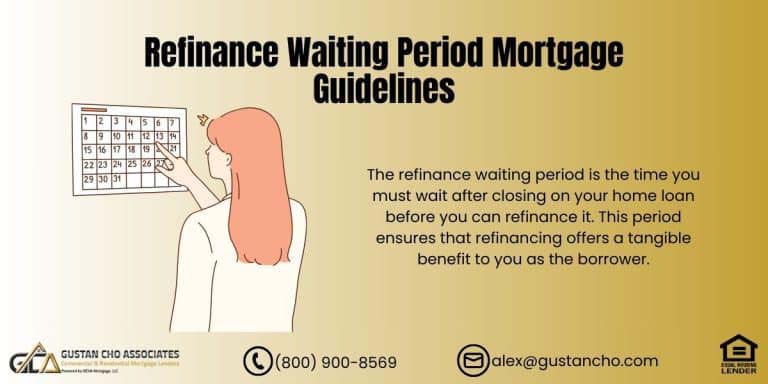This guide covers buying home cash and refinancing afterwards to get a better deal on the home purchase. It is no secret that home sellers tend to accept a cash offer by homebuyers. Often times, sellers will give cash buyers a better deal than buyers with mortgage contingencies. John Strange, a senior mortgage loan originator at Gustan Cho Associates says the following about buying home cash and refinancing afterwards.
Homebuyers with less and/or no contingencies often are favorites of home sellers and listing realtors. The real estate market is hot. There is more demand for homes than inventory.
Cases of multiple purchase offers are common throughout the United States. One way of getting the winning bid on multiple bidding wars is by buying home cash with little and/or no contingencies. In this blog, we will discuss Buying Home cash and refinancing afterwards to get a better deal on the home purchase.
Buying Home Cash To Get Winning Bid
The main reason home sellers like home buyers who are buying home cash are because of the following reasons:
- Fast closings
- Little to no contingencies
- No worries about home appraisal coming in low
- Many cash home buyers will purchase the home as is with no home inspection contingencies
- No finance contingencies
- Earnest money being non-refundable
In lieu of no mortgage, appraisal, home inspection, earnest money refund contingencies, home sellers will often accept the buyer who is offering a cash offer. They will also offer a lower price with cash home buyers. As long as home buyers can show proof of funds and a super fast closing, the seller will most like accept a cash offer versus an offer with several contingencies.
Buy Your Home in Cash, Then Refinance Later for Better Terms
Secure your dream home today with cash and refinance when the timing is right.
Cash-Offers On Home Purchase
Cash offers are not common with owner-occupant primary homes. Most primary home buyers do not have the cash in hand to purchase their primary homes without getting a mortgage. However, during a hot housing market with multiple offers, many home buyers want to get creative to get the winning bid. Buying home cash often an option in getting the winning bid. Alex Carlucci, a senior mortgage loan originator at Gustan Cho Associates says the following about buying a home cash and refinancing afterwards to get a better deal on the home purchase.
Creative home buyers often consider borrowing the cash from family, friends, relatives, business associates, and/or hard money lenders and doing a cash-out refinance as soon as closing on their home loan.
Unfortunately, doing a cash-out refinance right after closing their home loan with cash is not as simple as it sounds. We will discuss doing a cash-out refinance on a home after buying home cash and the obstacles borrowers will run into.
Using Hard Money Loans To Purchase Homes
Hard money loans are only allowed to purchase investment properties and not owner-occupant homes. Investment real estate is not regulated. Owner-occupant primary homes are. Mortgage disclosures and RESPA does not apply on investment properties but does apply with owner-occupant primary homes. Hard money lenders normally require 20% to 50% down payment by borrowers and you cannot finance owner-occupant homes with hard money loans. Interest rates on hard money loans are north of 10%. Pre-payment penalties are prohibited on primary owner-occupant properties. Pre-Payment penalties are allowed on investment real estate. Hard money lenders who lend on primary residential homes are violating RESPA and/or federal/state mortgage laws.
Refinancing With FHA Loans After Buying Home Cash
HUD, the parent of FHA, requires a six month waiting period after the closing of a home loan for borrowers to qualify for a rate and term FHA loan. The waiting period extends to a 12 month waiting period for a cash-out FHA Refinance Loan
Borrowers who borrow money from outside sources need to be careful in buying home cash with borrowed money and promising the investor they will pay them back right away
If the home buyer only qualifies for an FHA Loan and need to do a cash-out refinance after buying home cash, they need to wait 12 months.
Fannie Mae And Freddie Mac Guidelines On Cash-Out Refinancing After Buying Home Cash
Fannie Mae and Freddie Mac Guidelines on Cash-Out Refinancing on conventional loans require a six month waiting period after the original home purchase. Both cash-out and rate and term refinancing guidelines on conventional loans are six months from the original home purchase date. Home buyers who intend in refinancing after buying home cash need to wait six months.
NON-QM Loans
NON-QM Loans are alternative mortgage programs. Many borrowers who do not qualify for government and conventional loans can qualify for non-QM loans. NON-QM Loans are ideal for borrowers with the following:
- Recent bankruptcy, foreclosure, deed in lieu of foreclosure, short sale
- Recent late payments in the past 12 months
- Borrowers who need to use asset-based lending
- Self-employed borrowers with little or no income declared on their income tax returns
- Home buyers who need higher loan limits than government and/or conforming loan limits
NON-QM Loans are for both purchase and refinance transactions. Borrowers can qualify for non-QM cash-out refinance mortgages six months after purchasing their property on owner occupant properties and 12 months on investment properties. Maximum cash-out loan to value on non-QM loans is 80% LTV.
Buying a Home with Cash and Refinancing Later: A Smart Strategy for Homebuyers
Introduction to Cash Home Purchases
With the hustle of the current housing market, paying cash for a home can set you apart from the crowd. Sellers prefer cash because it streamlines the sale, reduces hassles, and can close the deal weeks faster. But the buy-now and mortgage-later game isn’t just for the deed. Refinancing after your cash buy can put equity to work, lower your monthly payments, or even fund your next investment. This guide walks you through the why and the how of the cash buy-and-later-loan strategy, giving homebuyers a pocketful of smart moves.
Why Sellers Prefer Cash Offers
Sellers are often drawn to cash offers for three big reasons:
- Speed: Without a mortgage, the clock moves much faster.
- The National Association of Realtors reports that cash deals can close in as little as 7 to 14 days, versus the usual 30 to 45 days for a financed offer.
- Rock-Solid Certainty: Skip the lender, and you skip the chance of a deal falling apart over financing, appraisal, or inspection surprises.
- Room to Bargain: Cash carries weight.
- Many sellers will drop the price to get the deal off the table quickly and with fewer moving parts.
- Savvy buyers can use this tactic to get noticed in tight markets by knowing why sellers like cash offers in the first place.
Pay Cash for Your Home Now, Refinance Later for Lower Payments
Explore the benefits of buying your home in cash and refinancing to save in the future.
Why Buying a House with Cash Makes Sense
Paying with cash has perks that go beyond impressing the seller. Here are the reasons many buyers find it wise:
Winning in Bidding Wars
Cash offers act like a badge of financial strength when many offers pop up in hot markets. Sellers often choose cash offers over financed offers, even if the financed one is bigger.
Lower Final Price
Sellers often trade a little price for a lot of peace. Cash buyers can skip mortgage worries and get a better price, shaving thousands of dollars off the final number.
Goodbye, Monthly House Payment
Paying all at once means no more mortgage bills, no interest piles, and no PMI. Your monthly budget boosts can go to other investments or projects around the house.
Refinance Flexibility Later
Once you own the house free and clear, the door is open to refinance later. You can tap the home’s equity, often at a better rate, to fund upgrades or other financial plans.
Easier Closing
Fewer papers and no finance checks mean a quicker, less stressful closing. Less fuss at the closing table usually means getting your keys faster.
How to Buy a Home with Cash
Buying a house with cash can speed up the process and save you interest costs. Just follow these steps to make it go smoothly:
Step 1: Check Your Funds
First, confirm you have enough cash on hand. Look at:
- The sale price of the home.
- Closing costs usually run 2 to 5 percent of the sale price.
- Extra money for surprises, repairs, or any future refinancing.
Step 2: Get Proof of Funds
Sellers want to know you can pay cash, so you must show proof. You can get a recent bank statement or ask your bank for a letter stating your available cash.
Step 3: Make the Offer
Work with a real estate agent to write a strong cash offer. Explain why cash is better for the seller, like how you can close faster without waiting for loan approvals or dealing with extra inspections.
Step 4: Do Your Homework
Pay cash, but still do the smart checks:
- Home Inspection: Ensure the house is sound and doesn’t have hidden problems.
- Title Search: Check for liens or any ownership disputes.
- Appraisal (Optional): You don’t have to, but an appraisal can ensure you pay a fair price.
Step 5: Close the Deal
Get with a title company or real estate attorney to seal the deal. Once the money moves, you’ll get the deed, and BAM—the house is officially yours.
Refinancing After a Cash Purchase
Refinancing a house you paid for in cash is a smart way to unlock some of your money while enjoying the edge of a cash purchase. Here’s the 411 on the process and why you’ll want to consider it.
What Is Cash-Out Refinancing?
Cash-out refinancing means you take a new mortgage against your home and pull cash out of the equity you’ve built. Suppose you buy a $300,000 home in cash, which later appraises for $320,000. You can refinance for $240,000, which is 80% of the new value. After closing costs, you pocket the cash difference, which puts some of that equity to work for you.
Consider Paying Cash for Your Home and Refinancing Down the Road
Understand how this strategy can work for you, offering flexibility and future savings.
Benefits of Cash-Out Refinancing
- Access to Cash: You can tap the cash for repairs, pay off higher-interest debt, or invest it elsewhere.
- Lower Interest Rates: If mortgage rates fall after you buy, a refinance can lower your rate and shrink your payments over the long haul.
- Tax Perks: Mortgage interest is sometimes tax-deductible, saving you money compared to interest on personal loans. (Get with a tax pro for the details.)
- Flexibility: Choose a loan term that matches your financial plans, whether a quick 15-year term or the standard 30-year term.
When to Refinance
Timing matters when you decide to refinance. Here’s what you should note:
- Seasoning Period: If you paid cash for your home, most lenders want you to wait between 6 and 12 months before you can do a cash-out refinance.
- This is called the “seasoning period.”
- Market Conditions: Always keep an eye on interest rates.
- When rates dip, it’s a good time to lock in a lower payment.
- Home Value: Ensure your home’s current value is high enough to cover your desired cash.
Steps to Refinance
- Shop for Lenders: Don’t settle for the first offer you see.
- Get quotes from several lenders, then see who gives you the best rates and lowest fees.
- Get an Appraisal: The lender will order an appraisal to confirm the home’s current value.
- Apply for the Loan: Gather your paperwork and send your income docs, bank statements, and credit history.
- Close the Loan: At closing, you’ll pay fees ranging from 2 to 6% of the loan amount.
- After that, you’ll get the cash you planned to take out.
Key Considerations Before Buying with Cash and Refinancing
This cash-first-to-refinance approach has pluses, but think through a couple of key points:
Opportunity Cost
Putting a big chunk of cash into your home means money can’t work for you in places like the stock market or a rental property. Run the numbers to see what you might miss out on.
Refinancing Costs
Remember that refinancing isn’t free. You’ll face closing costs, an appraisal charge, and lender fees. Add it all up to make sure it’s worth your while.
Interest Rate Risks
Refinancing might boost your monthly payments if rates climb after you buy the house in cash. Keep an eye on market trends, or consider locking in a rate sooner rather than later.
Market Fluctuations
If your home’s value falls after you buy it, you might not get the loan amount you hoped for when it’s time to refinance. Study the local market trends to help you spot this risk early.
Tax Implications
Talk to a tax advisor to learn how paying cash for the home and refinancing later could affect your tax situation, from deductions to possible capital gains.
Tips for Success
To get the most out of paying cash and refinancing later, try these strategies:
- Team Up with Experts: Work with a good real estate agent, a financial advisor, and a mortgage broker who know the local market.
- Know the Market: Keep track of local real estate trends to decide the best time to buy and when to refinance.
- Keep Your Credit Strong: A high credit score can help you snag better refinancing deals when the time comes.
- Plan for Cash Reserves: Make sure you have enough savings leftover for emergencies and refinancing fees.
- Stay Updated: Watch interest rates and the economy to time your refinance for the best outcome.
Frequently Asked Questions
Is it better to buy a home with cash or a mortgage?
- It comes down to your money situation.
- Paying cash lets you close the sale quickly and often helps you negotiate a better price.
- On the other hand, a mortgage lets you keep more cash in your pocket for other uses.
- Some folks buy the home for cash and then refinance with a mortgage later to get the perks of both methods.
How soon can I refinance after a cash purchase?
- Most lenders ask for a waiting period of 6 to 12 months.
- This is often called a seasoning period.
- However, a few lenders will let you refinance right away.
- Always check with your lender to see what their rules are.
Are there risks to cash-out refinancing?
- Yes, there are a few risks.
- If interest rates go up or home values drop, you could receive a higher payment.
- Plus, refinancing comes with costs.
- Before you move forward, measuring those risks against what you might gain is a good idea.
Do cash buyers need a home inspection?
- A home inspection isn’t required, but it’s a smart move.
- It can uncover hidden issues or expensive repairs that might surprise you after the sale.
Buying a home with cash and refinancing later offers homebuyers a smart way to stand out in today’s market. Cash offers make your bid more attractive and can lead to a quicker closing and a lower purchase price. Once you own the home, refinancing later gives you access to equity, cuts your monthly costs, and keeps your budget on track, all while letting you stay flexible about future spending. With the right planning, strong team support, and good market research, this method can help you tick off your home and finance goals.
Ready to move forward? Talk to a real estate agent and a financial advisor to see if the cash-buy-then-refinance plan fits your situation.
Buy Cash Now, Refinance Later for Greater Financial Flexibility
Maximize your investment by paying cash and refinancing later for a more affordable mortgage.


